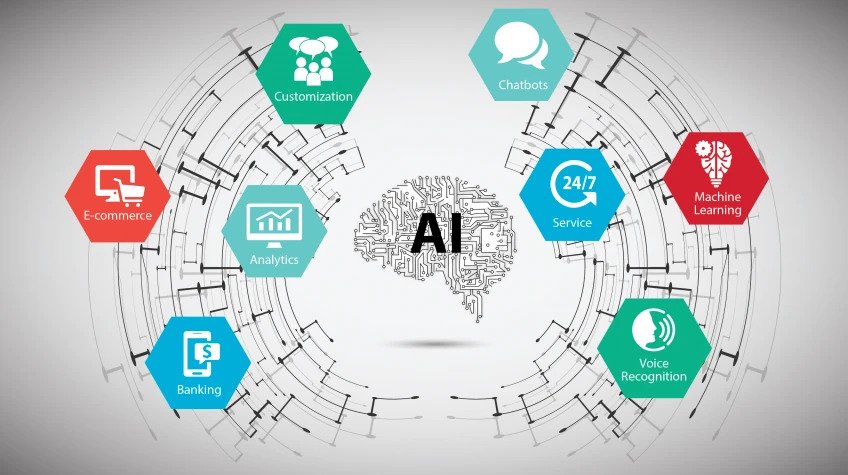In today’s digital age, content marketing has become a cornerstone for businesses across all industries. Yet, not all content is created equal. The key to a successful content strategy lies not in the volume, but the value that it delivers to the target audience. But how can businesses ensure that their content hits the mark every time? The answer is simple yet profound – through the strategic use of data and analytics.
In this comprehensive guide, we’ll take a deep dive into the intricate dance between content strategy and data analytics. We’ll explore actionable insights and tools that can transform numbers and metrics into compelling narratives that resonate, engage, and convert. Every word, image, and video is a potential goldmine of engagement and conversions when informed and shaped by data.
The Foundation of Data-Driven Content Strategy
Leveraging Data for Audience Insights
Every successful content strategy begins with an in-depth understanding of the audience. Who are they? What are their pain points, preferences, and behaviors? Data analytics tools and platforms empower content creators to glean insights that were previously obscured, transforming raw data into a well-defined audience persona.
Google Analytics, SEMrush, and similar platforms provide detailed information on audience demographics, behavior patterns, and engagement metrics. By delving into this data, content creators can customize their approach, tailoring content that speaks directly to the audience’s needs, preferences, and pain points.
Mapping the Customer Journey
Data also unveils the intricate paths that customers tread along their buying journey. From awareness to consideration, and finally to the decision stage, each phase is marked by distinct behaviors and preferences. By mapping out this journey through data, content can be crafted to meet customers at each phase, offering them value and nudging them gently towards conversion.
SEO & Content: A Symphony of Data
The SEO Connection
SEO and content marketing are two sides of the same coin, especially when enriched by data analytics. SEO isn’t just about keywords; it’s about understanding user intent, search patterns, and the ever-evolving algorithms of search engines. Analytics tools can help decode these elements, offering insights to create content that not only ranks high but also offers immense value to readers.
Google’s Search Console, Ahrefs, and Moz offer detailed insights on keyword rankings, backlink profiles, and competitor analyses. These insights are crucial to craft content that addresses specific keywords and topics trending in the industry, aligning with the search intent of users.
Content Optimization
Data doesn’t just inform content creation; it also plays a pivotal role in content optimization. Engagement metrics, bounce rates, and user feedback offer real-time insights into the content’s performance. Armed with this data, content marketers can refine and optimize content, enhancing its relevance, engagement, and SEO value.
A/B testing, user feedback, and analytics on user engagement and behavior are vital tools in this process. They help refine headlines, content formats, and even the content distribution strategy to maximize reach, engagement, and conversions.
Analytics in Content Distribution
Targeted Content Distribution
Creating stellar content is only half the battle won; the other half lies in getting it in front of the right eyes. Data analytics supports this by offering insights into the platforms and mediums where the target audience is most active and engaged.
By analyzing the data on user preferences, behaviors, and engagement metrics across various platforms, content marketers can create a targeted distribution strategy. It ensures that content reaches the audience through their preferred platforms, maximizing its impact and ROI.
Social Media Insights
Platforms like Facebook Insights, Twitter Analytics, and LinkedIn Analytics offer in-depth data on user engagement, the best times to post, and the content types that resonate with the audience. By leveraging these insights, businesses can tailor their social media content strategy to enhance reach, engagement, and conversions.
Future Trends in Data-Driven Content Strategy
AI and Machine Learning
The future of content marketing is intricately linked with advancements in technology, especially AI and machine learning. These technologies promise to offer more refined, real-time, and predictive analytics, empowering content marketers to tailor their strategies with unprecedented precision.
Content tools integrated with AI can analyze vast sets of data, offering insights not just on what content resonates with the audience but also predicting future trends and preferences. This shift promises a more proactive approach to content marketing, where content can be tailored to meet the audience’s needs even before they articulate them.
AI-Powered Personalization
Content Personalization
As AI and machine learning continue to evolve, one significant stride expected is in the realm of content personalization. Unlike the generic content of yesteryears, future content will be highly tailored, akin to a bespoke suit, fitting the unique needs, preferences, and behaviors of each user.
Content will no longer be about broad segments but individual users. AI will analyze data from users’ browsing habits, social media engagements, and other online behaviors to craft personalized content experiences. Every piece of content, from the article’s body to its headline, images, and CTAs, will be personalized, enhancing engagement and conversion rates.
Real-Time Content Adaptation
AI won’t just personalize content; it will adapt it in real-time. As users interact with content, AI will analyze their behaviors, responses, and engagements. If a user isn’t engaging with content, AI can adapt it in real-time, changing headlines, images, or even content formats to enhance engagement.
This real-time adaptation will ensure that content is not static but dynamic, adapting and evolving to meet the users’ needs and preferences at every moment, offering unprecedented levels of user engagement and satisfaction.
The Analytics Tools of Tomorrow
Enhanced Analytics Platforms
While tools like Google Analytics, SEMrush, and Ahrefs have offered significant insights, the future promises analytics platforms with enhanced capabilities. These future tools will offer real-time data analysis, predictive analytics, and AI-powered insights, providing detailed, actionable insights for content marketers to optimize their strategies.
These platforms won’t just offer data but actionable insights, automating a significant portion of data analysis and offering recommendations for content creation, optimization, and distribution. Content marketers can focus on crafting engaging content, with analytics tools offering the insights and recommendations for optimization.
Integration of Biometric Data
The future might also see the integration of biometric data in content analytics. By analyzing data like users’ eye movements, facial expressions, and even heart rates, future analytics tools can offer insights into users’ emotional responses to content.
This integration of emotional analytics will offer content marketers insights not just on whether users are engaging with content but how they feel about it. It promises content that not just meets users’ informational needs but also resonates with their emotions, offering enhanced levels of engagement and conversions.

Related: Check out our free SEO suite

The Road Ahead
Proactive Content Strategies
The integration of advanced analytics, AI, and machine learning will shift content marketing from reactive to proactive. Content marketers will be equipped to anticipate users’ needs, preferences, and behaviors, crafting content that meets users even before they articulate their needs.
This shift to proactive content marketing will be characterized by content that’s not just highly personalized but also anticipatory. Brands that leverage these advanced technologies and integrate data analytics into every step of their content marketing will lead the pack, offering users unmatched levels of customization, engagement, and satisfaction.
Ethical Considerations
As content marketing dives deeper into data and personalization, ethical considerations will come to the fore. Issues around data privacy, consent, and ethical use of data will dominate discussions. Content marketers will need to balance the drive for personalization with users’ privacy, ensuring that content not just engages but also respects users’ privacy and choices.
Integrating AI into Content Creation
AI-Driven Content Creation
As we move forward, AI’s role in content creation becomes increasingly significant. But it’s not about machines replacing human creativity; rather, it’s about AI tools working hand-in-hand with content creators, enhancing their capabilities and allowing them to focus on innovation and strategy.
AI can automate the more tedious aspects of content creation. Tools like AI-powered writing assistants can generate content outlines, suggest headlines, or even draft content that content creators can then refine. This means faster content creation processes, with human creativity focusing on adding the unique touches that make content resonate with audiences.
Enhanced Content Quality
AI isn’t just about speed; it’s also about quality. AI tools can analyze vast amounts of data to offer insights into topics that resonate with audiences, the type of content formats preferred, optimal content lengths, and much more. It ensures that the content created isn’t just rapid but also relevant, engaging, and high-quality.
The algorithms can identify trends and patterns that human analysis might miss, ensuring that every piece of content created is optimized for engagement, SEO, and conversions. It transforms content from guesswork to a data-driven science, ensuring every piece aligns with the audience’s needs and preferences.
Interactive Content Experiences
AI-Powered Interactivity
The future also holds a rise in interactive content. AI-powered tools can create quizzes, polls, interactive videos, and other forms of engaging content that keep audiences hooked. These aren’t just entertaining but also offer valuable data on users’ preferences and behaviors that can inform future content strategies.
Imagine a piece of content that adapts in real-time, changing its format, structure, or content based on the users’ interactions. It means every user gets a unique content experience, tailored to their preferences, ensuring higher engagement rates and more significant value delivery.
Real-Time Feedback Mechanism
AI also means real-time feedback. As users interact with content, AI tools can analyze these interactions to offer instant insights. Content strategies can be tweaked in real-time, ensuring that content always remains optimized and relevant. It’s not just about creating content but also about optimizing it in real-time to ensure it always delivers maximal value and engagement.
Future Skills for Content Marketers
Data Literacy
As AI and data become central to content marketing, the skills required for content marketers evolve. Future content marketers need to be data literate, able to interpret and utilize data to inform content strategies. It’s about marrying creativity with data, ensuring that content is both creative and data-optimized.
AI Collaboration
Future content marketers also need to be adept at working with AI. It’s about understanding AI’s capabilities and limitations and knowing how to harness AI to enhance human creativity, not replace it. The future content marketer is a hybrid professional, part creative genius, part data scientist.
Wrapping It Up
AI is not a distant future trend; it’s a present reality. Content marketers who start integrating AI into their content strategies today will be the leaders of tomorrow. It’s about creating content that’s not just engaging but also data-driven, personalized, and optimized in real-time. As we step into this future, the distinctions between content marketer and data scientist will blur. Every content marketer will need to be adept at utilizing data and AI to craft content strategies that aren’t just creative but also informed, optimized, and highly engaging.
Content is evolving, and as it does, it offers content marketers unprecedented opportunities to engage audiences like never before. The future is bright, and it belongs to content marketers ready to step into the brave new world of AI-powered, data-driven content marketing. The question isn’t whether to adapt, but how quickly you can transform your content strategies to leverage the boundless opportunities that AI-powered, data-driven content marketing offers.
READ NEXT:
- Let’s Discuss How We Can Help Improve Your Business
- The Future of Content Marketing: Predictions and Trends to Watch
- How to Dominate Google Rankings for Every Type of Loan Service
- The Ultimate Guide to Make Your Website Adsense Ready: Make Money Online
- 12 Tips To Uncovering a Great Digital Marketing Agent or Agency





















Comments are closed.